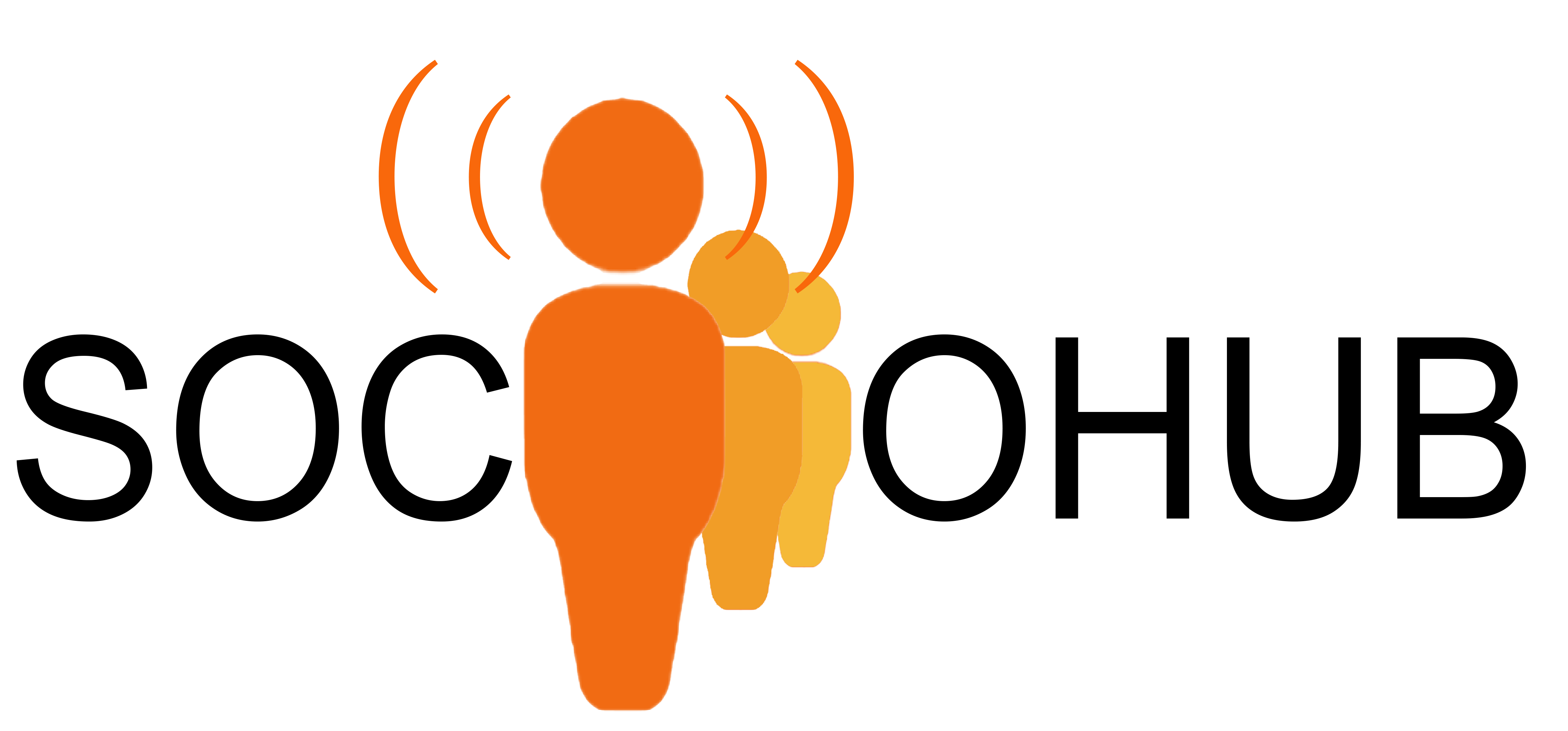Hey there! On the 7th of December, as we wrapped up the first semester and with the holidays in sight, it was time again for the bi-annual Student Research Symposium of the Sociology Department. This time around also featuring students following an Extended Master in sociology. At SocioHub we were very curious as to what they had been up to since the start of the academic year and so we joined the poster presentations of Francesca Burato, Dimitrios Chatzantourian, Emilio Cammarate and Tim Paulusse, diving deep into the world of Extended Master students. They share the lowdown on how to score the perfect internship, spill the beans on their motivations, and highlight two big factors for a successful choice.
“an Extended Master program is like a deluxe version of the original sociology master”
Now, for those scratching their heads, an Extended Master program is like a deluxe version of the original sociology master. You tag on a 30 ECTS internship to your regular master’s program, offering you more working experience and valuable skills for the labour market. The students we had the honour to discuss their internship with were following the tracks ‘Politics, Policy and Society in a Comparative Perspective’ and ‘Global Management of Social Issues’, as you may have seen on our story during the Student Research Symposium (if not, follow us, we’ve got the good stuff!). But hold up, it’s not exclusive to these master tracks. You can also dive into an Extended Master while cruising through the track ‘Health, Wellbeing and Society’ or ‘Politics, Policy and Societal Development’. Are you contemplating whether or not to follow an Extended Master? Or do you have some questions about what makes an internship valuable? Then this blog post is for you! Stick with us as we walk you through the experiences and recommendations of this year’s students.
Navigating the Internship Maze
Choosing an internship? Yeah, we’ve all been there, standing at the crossroads of decisions. It is important to find an internship that fits your own interests and aspirations. It is no wonder then that the EM students winded up working for a diverse set of research organizations, ranging from a longitudinal survey research program like the European Values Study (EVS), to the Research Centre for Education and the Labour Market (ROA), all the way to the national research infrastructure ODISSEI. Where the students within these organizations stayed within the academic circles, Tim purposely went to explore the sociological work field beyond them and ended up at a commercial research agency, the Verwey Jonker Instituut. Although all of them went their own way and had their own motivation to do so, they spilled the beans on two big factors in successfully choosing an internship organization. Here’s the insider’s guide to making your internship count.
Experience, network and other perks
First of all, find something in the field you’re into. This can help you figure out if it is your thing and what parts of the field you do and don’t like. It also gives you the possibility to have some work experience and to create a killer professional network within this field, which comes with all types of benefits. Tim even mentioned that there might be a job offer on the horizon for him at his current internship organization after he finishes up his degree! Francesca decided to work within an organization that employs a lot of PHD students and professors as she was interested in pursuing a PHD herself and she experienced the internship as very informative in this regard. She was able to learn a lot about what such a career path would be like and this helped her shape the image of her own future

with more certainty. Finally, Dimitrios chose his organization because of the abundance of international ties it offered, which allowed him to expand his international network.
It’s all about the work
Second, the type of work you will be able to do is key. Some of the extended master students had the chance to work on a fluctuation of different subjects, which helps to keep things interesting and gives you experience with a variety of topics. This was for example the case for Dimitrios at the European Values Study and Emilio at ODISSEI, who worked on different themes and projects within their organization. Other students were assigned to one project that they were able to fully dive into and give their all, becoming a specialist in the field.
However, the type of work you will do exists of more than just the general subjects you will be working on. It might be helpful to find out what your day-to-day jobs would look like. It could be crunching statistics, diving into research, drafting up literature reports, hitting up meetings, or maybe even presenting like a boss. The possibilities are endless and who knows, it might even be something completely off the charts!
A Day in the Life of Extended Master Students
To give you a more specific idea about the kind of tasks and projects that you can expect or look for within an internship organization, we give you a sneak peek into the projects that this year’s students have worked on and how they rolled during a regular workday.
Emilio interned for ODISSEI, where they match up data management and research projects by making data more findable and accessible. Here he had the chance to work with some amazing researchers who worked on a variety of topics regarding new and contemporary challenges in society.
At the European Values Study, Dimitrios helped to bring about a new version of the EVS Atlas. Most of the time he was busy translating separate data sources into one common survey coding. To do this he had to discuss the codes in meetings and communicate with the stakeholders, so he has done his fair share of presenting and feels way more comfortable doing it now. The most valuable thing that he took away from his internship is the importance of always reflecting on your impact and how you are going to present it.
Francesca choose for ROA, where she studied all kinds of topics related to the transition from education to the work field. A big part of her hours was dedicated to literary research and she wrote a bunch of literature reviews, although she also had some tasks regarding coding, methodology and statistics. Above all that, she got to discover and work with some really exciting new software which is used for eye tracking experiments. This internship gave her more confidence and certainty about her future.
Tim interned at the Verwey Jonker Instituut, where he was assigned two main projects. His tasks ranged from theoretical and literary research, to writing texts and doing presentations about his findings. He even worked on guidelines that were actually published. After this experience he is increasingly certain that he wants to work in research, but outside of the academic circles.
Crafting Your Extended Master Story
As has become clear from the students’ stories, an Extended Master isn’t just more books; it’s a rollercoaster of experiences. Building a network, gaining skills – the perks are real. Especially if you have
already got your future locked in, the confidence, skills and contacts might help you get along in your further career. However, there is absolutely no reason to panic if you are not entirely sure, or simply have no clue yet, about what you would like to do after you graduate. It’s actually all the more reason to join the program! Following an extended master might be the perfect way to put yourself out there and orient yourself on the job market, in order to find out what your personal interests and preferences are.
So whether you’ve got your future mapped out or you’re still figuring it out, following an Extended Master is a thumbs-up from everyone we talked to. We hope the experiences of this year’s students are as inspiring to you as they were to us and have given you some possible prospects to think about. So, as the year winds down, grab a break, enjoy the holidays, and let these stories spice up your plans!


Mona Heidenreich
Your blog brightens my day.
Preston Collins
This article is a perfect example of why I follow your blog.
Forest Runte
I admire your commitment to quality.
Camille Ortega
Thanks, I have just been looking for information about this subject for a long time and yours is the best I’ve discovered till now. However, what in regards to the bottom line? Are you certain in regards to the supply?